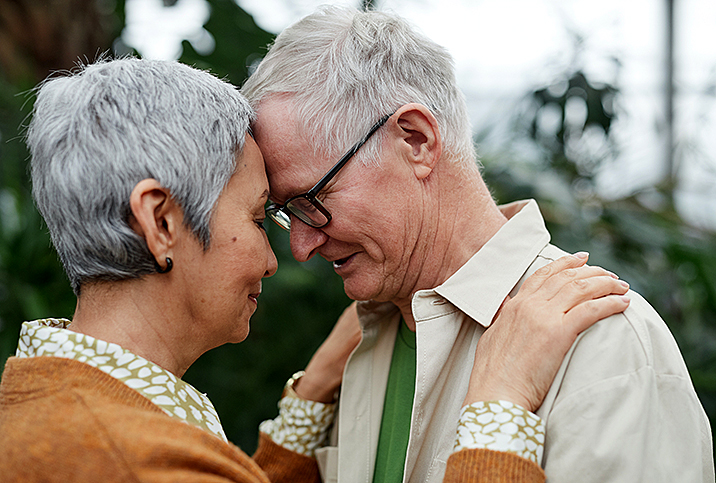Maintain Sexual Satisfaction in Middle Age

Some aspects of sexual health are likely to change as you get older. That being said, understanding what to expect can help you and your partner to adapt and maintain a satisfying sex life.
Relationship between sex & aging
As people age, their bodies experience natural changes that can affect their sex life.
For men, testosterone plays an essential role in sex. Though testosterone levels vary among men in general, older men tend to have less testosterone than younger men. According to the Mayo Clinic, testosterone levels in men age 30 and older decrease by about 1 percent each year.
As a result of lower testosterone levels, some men may find that it takes longer to get an erection, which may not be as firm as it once was. Some men may also find it takes longer to achieve orgasm.
Erectile dysfunction (ED) is a more common occurrence as men get older as well, although the good news is that there are several medications and devices that can help treat the condition. If you feel like you might be struggling with erectile dysfunction, talk to your doctor about the treatments that might be available to you.
Chris Reid from Kid 'n Play opens up about the changes he has experienced in the bedroom as he gets older. Watch the full interview here.
Women approaching menopause will experience decreases in estrogen levels. These changes in estrogen levels can cause a variety of issues, including emotional ups and downs, increased stress and slower sexual arousal. A woman can be prescribed hormones, including a small amount of male hormone (testosterone), which can improve sex drive.
When women age, they can also begin to experience vaginal dryness, which may make it uncomfortable and even painful to have sex. This problem can be fixed with a bit of lubrication, which can enhance the sexual experience for all parties involved. Your doctor can prescribe estrogen in various forms that can be inserted vaginally, which can restore the vaginal mucosa and eliminate painful sex.
Adapting to change
Aging is inevitable, and so are the changes that come along with it.
It’s natural for couples to go through stages where they have differences in sexual desire as they age into their 40s and beyond. In order to maintain a healthy sex life despite these changes, communication will be essential.
Don’t be afraid to be honest with your partner about how you’re feeling. Just because you may be experiencing a dip in sexual desire doesn’t mean it’s gone altogether. It may require a little more effort and creativity to find and encourage, but with a little communication, you and your partner can adapt and optimize your sex life for the better.
One of the main changes that comes for both men and women as they age is that it can take longer to reach full sexual arousal. If this is the case for you and your partner, try taking a little more time on foreplay. The power of romance, touching and kissing before getting to the deed, shouldn’t be underestimated. Taking some extra time on the front end of the encounter to get things going can make for a vastly more satisfying experience for both you and your partner. The added intimacy could make for a more meaningful memory as well.
It’s important to remember that a “normal” sex life is unique and very different for every couple. It’s important to relax, communicate and remember that, at the end of the day, all that matters is that you and your partner both feel fulfilled.


















